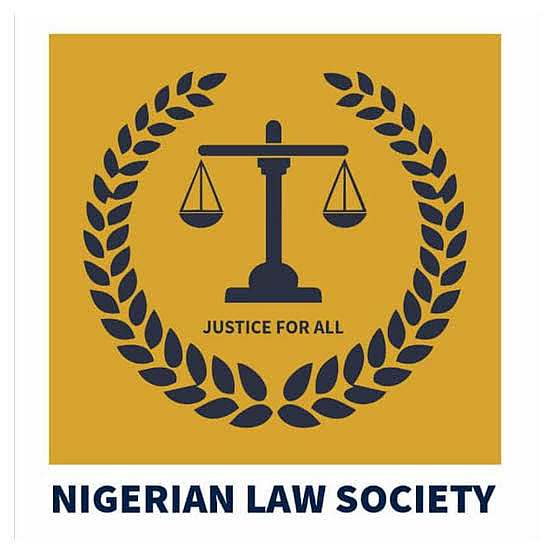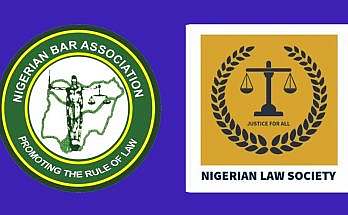BY PROF. ERNEST O. IZEDONMWEN
At the outset, I must state in categorical terms that bar associations are vital in any legal system. They are essential intermediaries in the advancement of the legal profession, especially in uplifting legal practice standards and supporting the professional development of attorneys.
However, bar associations should be distinguished from law societies. Most jurisdictions make membership of bar associations mandatory. For instance, in 2014, California bifurcated by statute the state bar association and law societies. Membership of the bar association is mandatory, and it is responsible for discipline of attorneys, while membership of law societies is voluntary and operate along with the mandatory state bar associations in other areas of the profession.
Let us briefly examine the mandatory bar association.
Their main functions are to license new attorneys, and membership is mandatory by statute. They are also responsible for maintaining ethical standards and guidelines for attorneys.
They perform this function through various ethical panels set up to adjudicate specific complaints from the public and sometimes from other attorneys and the judiciary. To this end, every attorney in Texas for example, must display the state bar complaint telephone number prominently in their office for easy access to the public.
The rules of professional ethics are developed and constantly updated by the bar’s ethics division and made available to attorneys. Attorneys disciplined for any reason are widely publicized in the monthly bar journal and the bar’s website among others, with details of their infringements and penalties assessed.
The penalties can range from private reprimand, public reprimand for less serious offences like refusing to return a phone call, to the suspension or revocation of license for more serious and egregious cases.
These ethics committees can also impose fines, award attorney fees, and order reimbursements in forms of disgorgements and restitutions. The bar takes its disciplinary functions very seriously because it seeks to maintain its self-regulatory status and to avoid government or third-party oversight.
The ethical areas the bar is mostly interested in are (1) confidentiality
2) conflicts of interest
3) competence-providing competent representations
4) promoting honesty and integrity-i.e. telling clients the truth-no matter how bad, attorneys should not take important decisions in a case without informing and obtaining the client’s consent. E.g. the amount of settlement.
Please note the difference between this and trial strategies and tactics which are within the exclusive purvey of the attorney.
Some critics and legal scholars have questioned whether bar associations made up of lawyers can effectively police other lawyers when they have a seemingly contradicting mission, to wit, promoting the interests of lawyers on one hand and protecting the interest of the public on the other. Some have accused the bar of “regulatory capture”, which means that regulatory bodies such as bar associations, invariably conflates the interests of their members with the interests of the public that they are supposed to protect and, in most cases, prefer the interest of their attorney members.
Of course, the co-existence of the mandatory bar association and the voluntary bar societies may not always be cordial, because of potential jurisdictional conflicts.  Every bar association jealously guards its monopoly over the legal profession, and some with the help of some legislatures, erect protective barriers around the bar to frustrate the emergence of voluntary law societies.
Every bar association jealously guards its monopoly over the legal profession, and some with the help of some legislatures, erect protective barriers around the bar to frustrate the emergence of voluntary law societies.
As I stated earlier, some jurisdictions have recognized the roles of voluntary law societies and have made statutory provisions for them. For instance, in California and Texas, the mandatory bar associations have exclusive jurisdiction over licensing and discipline of lawyers, while they share concurrent jurisdiction with the voluntary law societies in other spheres of legal practice.
ROLES OF BOTH BAR ASSOCIATIONS AND LAW SOCIETIES.
a. Public advocacy to influence legislations that affect the legal profession and administration of justice. They do this by organized campaigns, lobby the government and legislature, to enact beneficial laws for the profession. They provide testimonies at legislative hearings; help propose and draft legislations and legal reforms.
b. They make significant contributions to the development of legal practitioners. They provide various resources and platforms for skill enhancement in form of continuous legal education, and networking opportunities. This includes organizing seminars, workshops, and conferences on a wide range of legal topics, thus exposing members to emerging legal trends, best practices and ensuring that members remain competent and competitive in their practice.
c. Networking opportunities are crucial roles for law societies and bar associations. Members can connect and interact with experienced legal practitioners thereby fostering relationships that could lead to potential collaborations, referrals, and job opportunities which are very helpful for a successful legal career. In this regard, mentorship programs are very crucial. These programs pair young attorneys with seasoned attorneys, who can provide guidance, support and insights that help young attorneys understand the complexities of the legal profession. Networking enables attorneys to exchange ideas, share experiences and collaborate as needed.
d. Mentorship programs offer guidance on a variety of topics, from effective case management to navigating ethical dilemmas as well as fostering a culture of continuous legal education.
Mentorship programs play significant roles in shaping future legal professionals and by fostering strong relationships between mentors and mentees, law societies contribute to a more knowledgeable and ethically grounded legal community.
INFLUENCE ON THE JUDICIARY.
Law societies help promote judicial independence and ensure that judges maintain high ethical standards and accountability. These societies serve as bridges between the bar and bench. They also serve as vetting vehicles for appointing new judges or elevating judges to higher courts, as well as act as sounding boards for the discipline of judges. For instance, the American Bar Association’s (ABA) in judicial confirmations in the U.S.  IMPACT OF TECHNOLOGY.
IMPACT OF TECHNOLOGY.
As with every aspect of society, technology has undoubtedly changed the legal profession in the past few decades with a promise for more changes to come. Online resources have perhaps been more transformative. Research is just a click away with easy access to law reports and other legal resources, including comparative developments in other jurisdictions. Online filing and virtual hearings on zoom, Webex, Court Call and other online platforms are now routine in the U.S. especially during and post pandemic. With artificial intelligence in its infancy, its impact on the legal profession is already being felt, especially in the areas of legal brief writing and its potential flaws are being brought to the fore. Law societies and bar associations will be pivotal in ensuring that the legal profession reaps the full benefits of AI while avoiding its perils.
The bar and voluntary law societies play important roles in the development of the legal profession. They both have very crucial roles to play, not necessarily as superior and subordinate one to the other but as coordinates -working harmoniously towards the common goal of a competent, relevant, ethical and responsible legal profession.
Instead of fighting a turf protection war with the law society, bar associations should instead inquire into why some lawyers felt the need for the emergence of a law society and then work hard to addressing those concerns as well as encourage the law society to achieve the goal of a better legal profession.
The bar association should see the law society not as a rival but as a complimentary partner in advancing the goals of a competent and honorable legal profession. Both should be able to co-exist in meeting the challenges of an evolving legal, social and political reality.
•PROFESSOR ERNEST O. IZEDONMWEN , is a Dallas based attorney. A respected constitutional lawyer, he was first called to the Nigerian bar in 1984, and the Texas bar in 2003. He has been a past President of the Nigerian American Lawyers Association, DFW.


